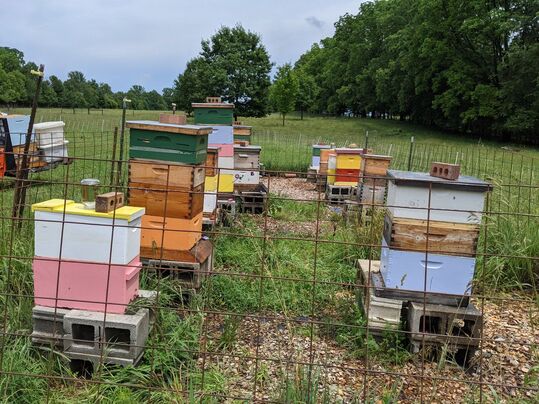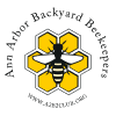|
Alternative A Warre hive is a vertical hive like the Langstroth hive with multiple boxes that may be heavy needing to be stacked. Unlike with the Langstroth hive where boxes are removed from the top of the hive stack, with the Warre, boxes are removed from the bottom of the stack. The believed benefits of a Warre hive are that it is “closer to nature” and requires less maintenance, but they only require less maintenance because they have much lower honey yields than a Langstroth hive. Normal maintenance for health, space, and disease are still required. It may be more difficult to find equipment and mentorship for a Warre hive and to test and treat the colony for diseases such as Varroa mite. Bench Mark I strongly recommend starting out with a Langstroth hive as a new beekeeper. Langstroth hive components are the easiest to find and often the most cost efficient. Also, most beekeeping courses, information, books, and internet videos are based on the Langstroth hive design. The main disadvantage of a Langstroth hive is that it can become quite tall and that the heavy boxes can be hard to lift and stack. This can be mitigated by splitting your hive in the spring and removing honey supers in a timely fashion. Climate The main advantage of a Kenyan Top Bar hive is that there is only one box and the colony grows horizontally so the beekeeper will not have to lift boxes off the stack. However, the one long box is quite bulky and heavy if it needs to be moved. Unfortunately, these hives are really meant for a more tropical climate, swarm frequently because the bees run out of space, and generally overwinter poorly because bees in a cluster prefer to move up instead of side to side to reach honey stores. They also either require special frames or are foundationless with very delicate comb that is difficult to handle or test for diseases like Varroa mites. Some people who make beeswax products prefer these hives because the bees need to make a lot of wax. More Information: https://www.honeybeesuite.com/in-praise-of-the-langstroth-hive/
0 Comments
Leave a Reply. |
AuthorJen Haeger is a new master beekeeper and board member of A2B2. Archives
August 2022
Categories
All
|


 RSS Feed
RSS Feed
